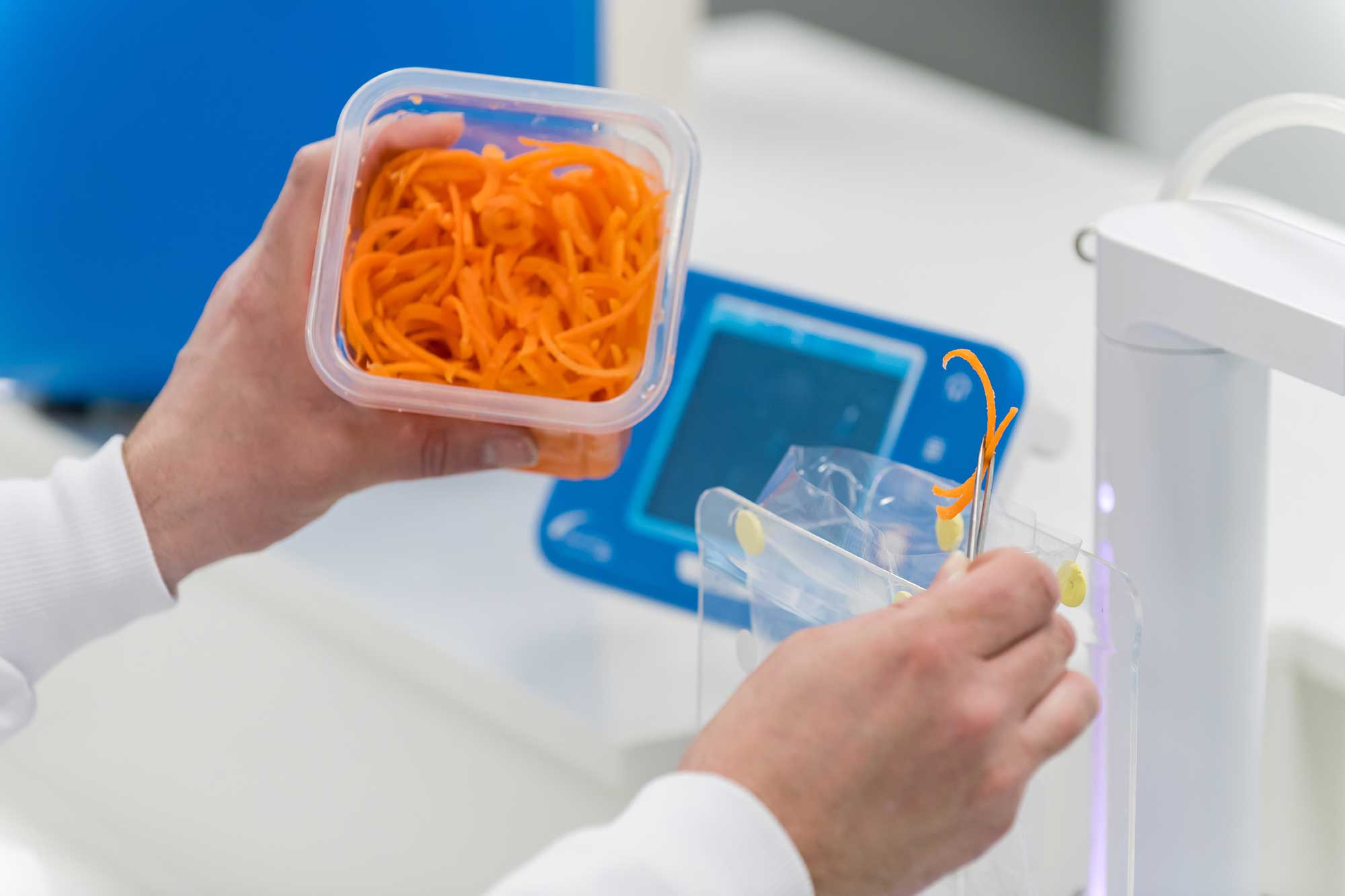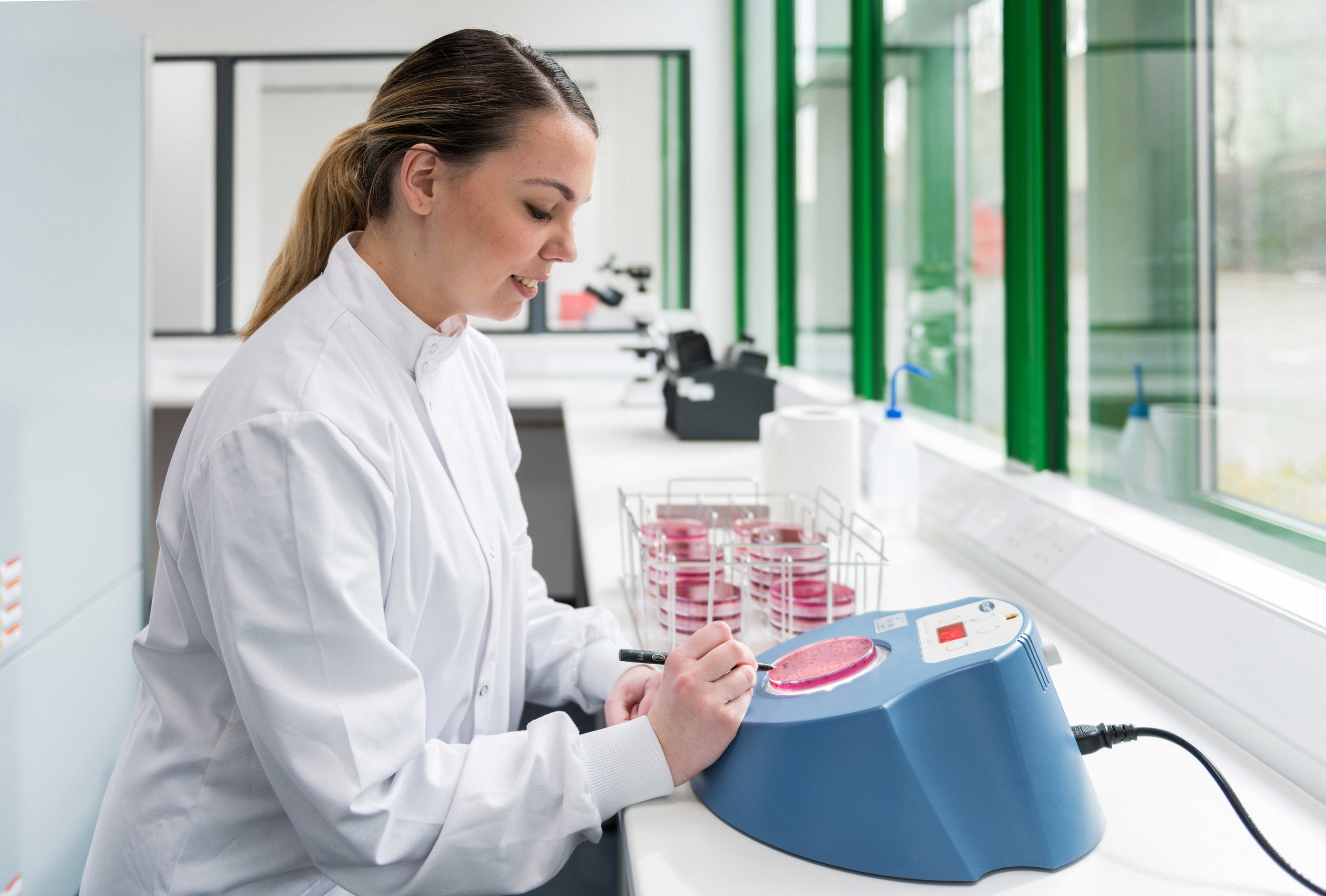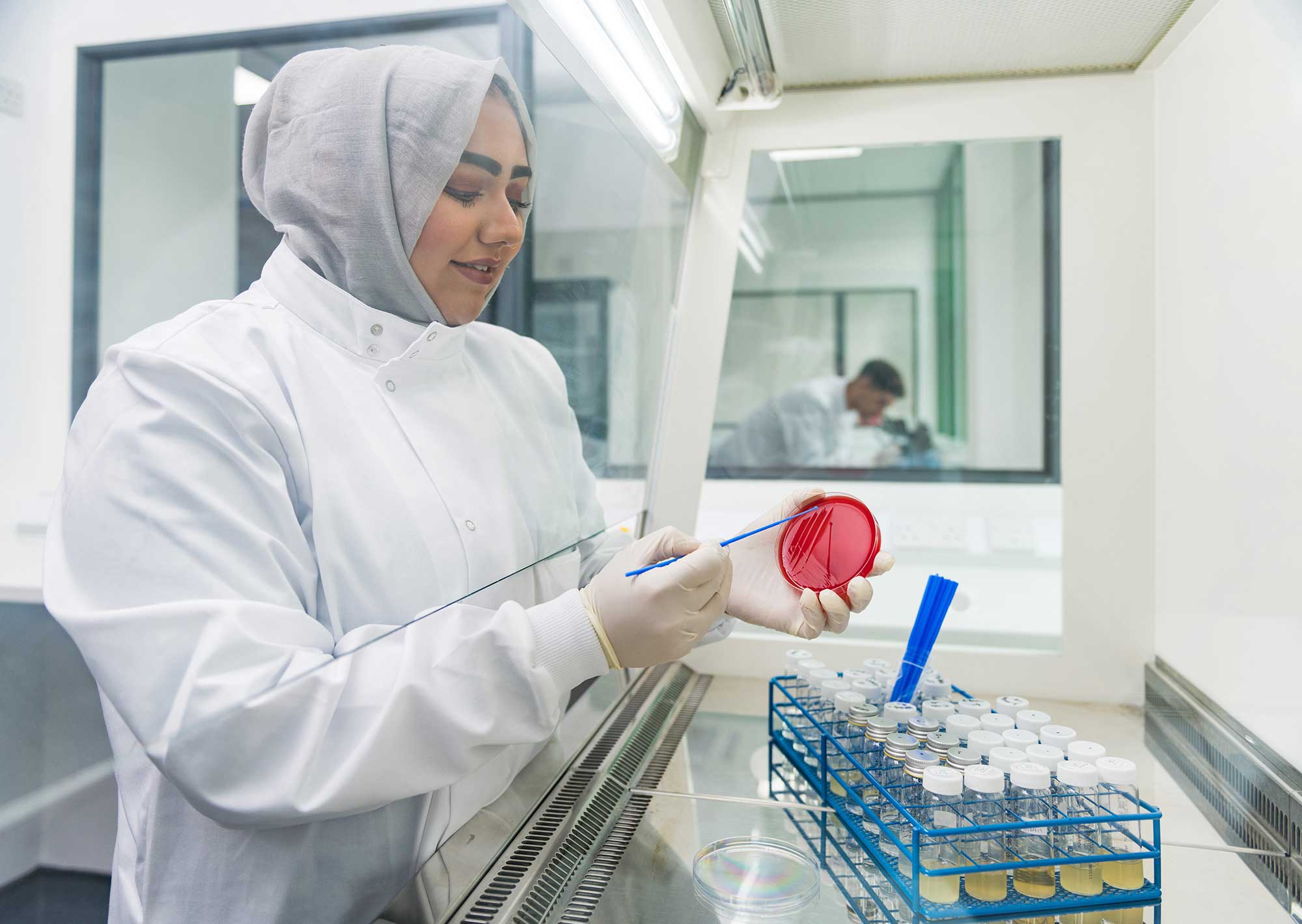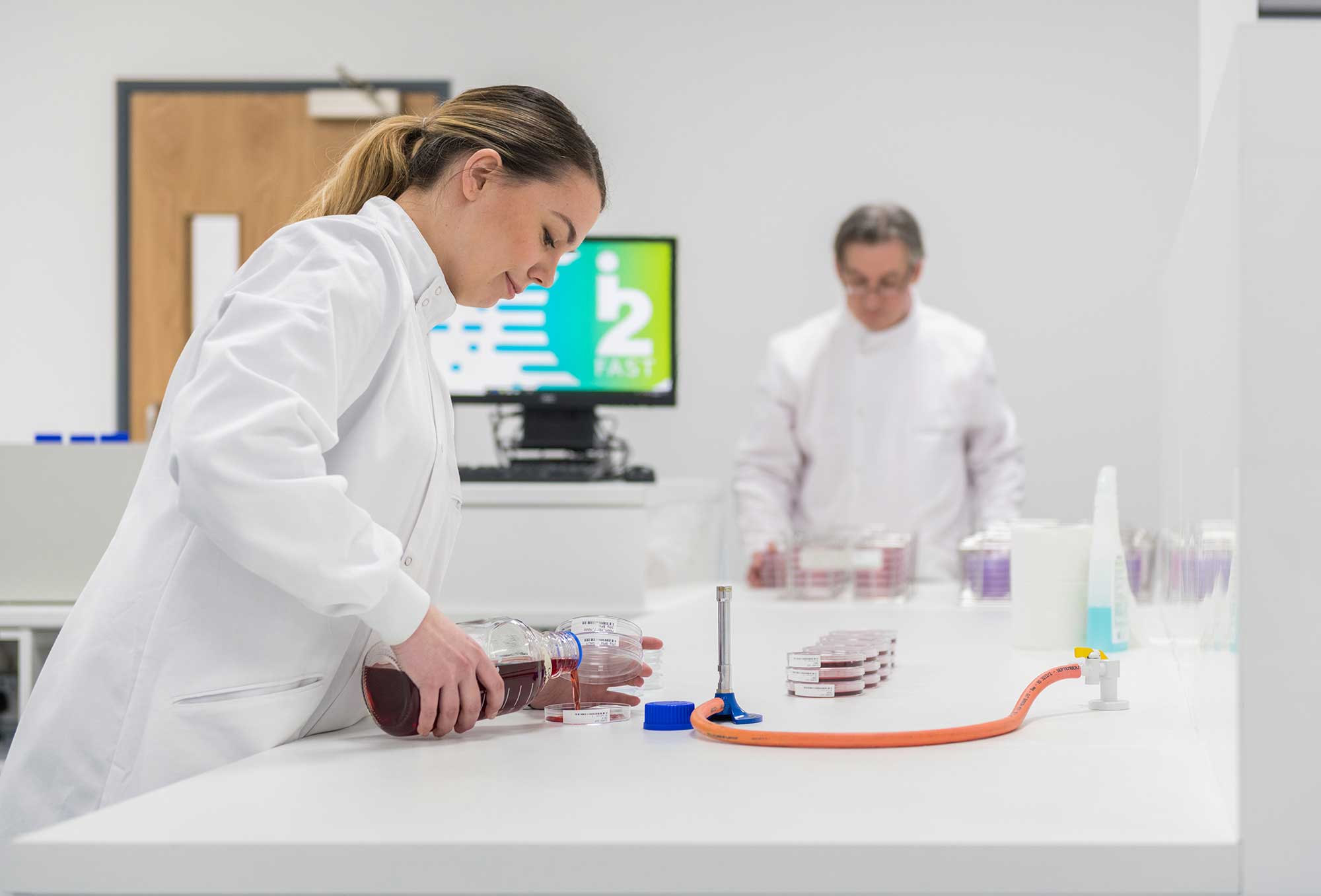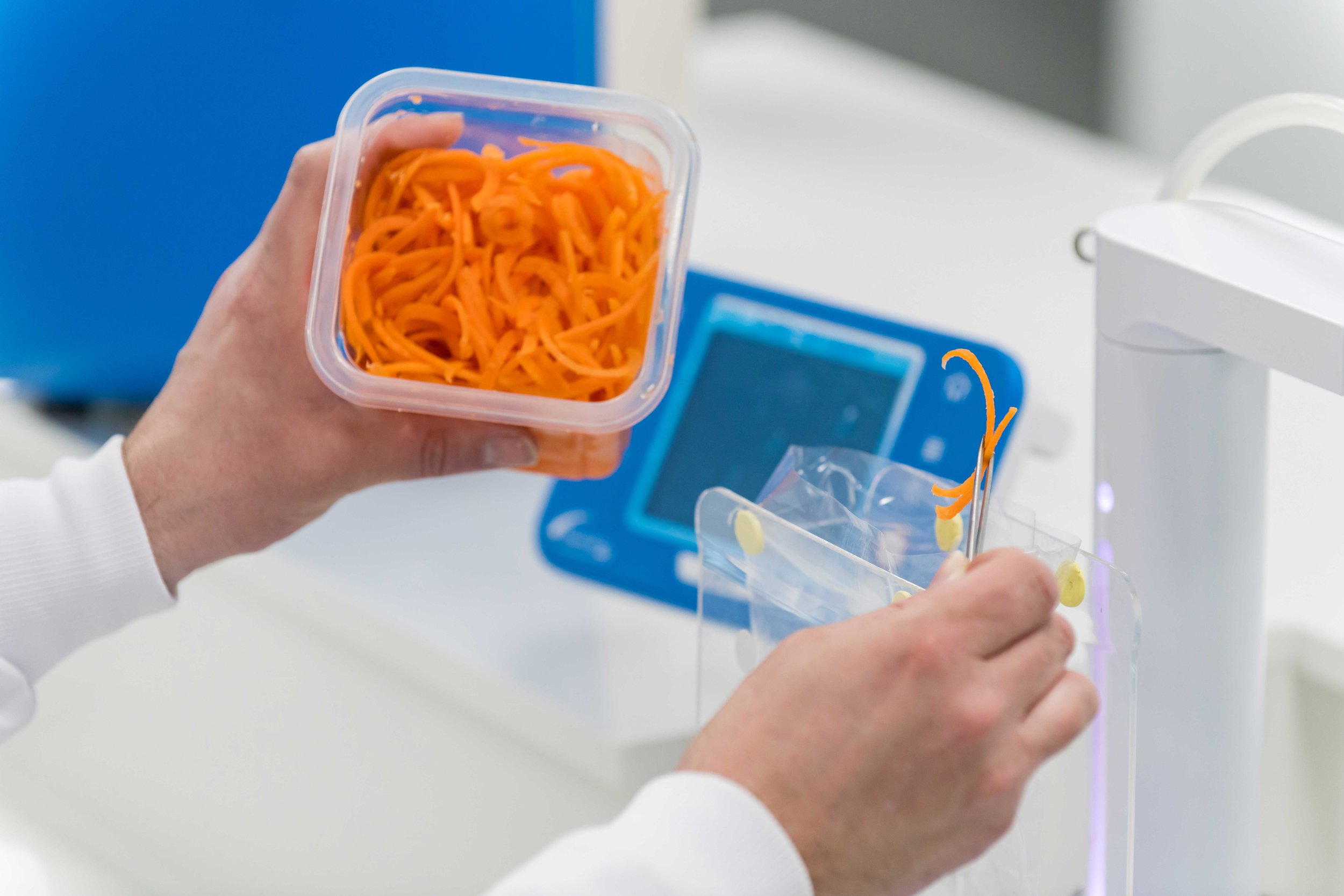
Microbiology food testing laboratory at i2 FAST
i2 FAST pioneers accurate and fast microbiology food testing processes for contamination confirmation so clients are assured of compliance with food safety legislation and microbiological risk assessments.
Our microbiology food testing laboratory offers comprehensive analysis for pathogens including salmonella and listeria. We constantly invest in new technologies to give rapid and cost-efficient results to clients.
The microbiology food testing criteria in the EU have been harmonised in Community legislation by the European Commission (EC) Regulation on microbiological criteria for foodstuffs [EC] No. 2073/2005 and Regulation on the Hygiene of Foodstuffs (No 852/2004) both effective from January 2006 and General Food Law (No. 178/2002) effective from February 2002.
Informational documents relating to the Regulation on microbiological criteria for foodstuffs have been produced by the Food Standards Agency (FSA) and the Chilled Food Association (CFA) / British Retail Consortium (BRC).
These Regulations apply to all Food Business Operators involved in the production and handling of food.
Rapid Pathogen Testing and Confirmation
Utilising modern and proven technology, i2 FAST will be one of the first laboratories in the UK to offer rapid accredited pathogen testing as a routine.
Presumptive Salmonella and E. coli O157 within 24 hours (following commencement of the test).
Presumptive Listeria within 30 hours (following commencement of the test)
Confirmation of the above pathogens can be within 48 hours from the point of the initial result of presumptive.
This speed of data halves the standard reporting time enabling customers to make critical decisions in a timely fashion.
Shelf life testing
At i2 FAST we have the technical ability to provide a real time microbiology shelf life testing service.
Determination of shelf life is a complicated science with many areas that intertwine. Shelf life testing is used to provide a use by date or best before date.
Our microbiology food testing facilities can accommodate the storage of samples and the management of shelf life testing via the Laboratory Data Management System.
Complete understanding of all processes, from intake of raw material through to packaging and storage and onwards to the end user processes, should be a requisite in order that a robust plan can be put in place to verify the expected shelf life of a product.
The following areas should be reviewed as part of the initial discussions, in order that the shelf life covers all relevant risks.
Risk assessment: – Raw Materials, Processes, Storage and expected end user processing
Physical-Chemical and Organoleptic analysis
a. pH
b. Water Activity
c. Taste
d. Texture
e. AromaMicrobiological analysis: type of analysis would be determined by the product type
a. Routine Shelf Life
b. Challenge Testing
c. Accelerated Shelf Life Testing
d. Predictive Modelling
The shelf life adopted would be based on the product type, the required shelf life, the environmental storage conditions and the processes undertaken to reduce/remove bacterial loading at start of life.
Shelf life determination is only as accurate as the batch analysed. Changes to the following could impact on your shelf life data, and consequently robust analysis of processes and raw materials should be undertaken, where these are identified as a risk to ongoing quality:
The production area: Shelf life should be completed on products that are being produced in a controlled and reproducible manner. Changes to the production area can impact on shelf life and should be verified.
Raw Materials: Unfortunately, not all raw material suppliers are created equal. A change to a supplier could introduce higher bacterial levels into your process, present alternative risks that were not originally identified or change the taste profile making the product less palatable. All changes should be verified to ensure ongoing relevance of the shelf life.
Processes: All processes should be monitored for ongoing reproducibility, especially where they form part of a Critical Control Point (CCP) – e.g. cooking temperatures and times. Changes to any process can impact on the shelf life, and should be verified.
Packaging and Storage: Changes to packaging and/or storage conditions can impact on shelf life. Any amendments to these should be fully verified prior to launch. Such changes could be:
Moving from a fully sealed pack to a breathable film
Changing packaging to meet recycling/compostable green targets
Changing from VAC/MAP to non VAC/MAP packing, or vice versa.
Updating sizes – large storage tubs have different bacterial risks to smaller tubs with regards to aerobic and anaerobic environments.
Information
Our technical staff are happy to assist with general guidance of testing protocols and the help with the understanding of the data. The i2 FAST custom built Data Management System (DMS) enables easy data management and trending enabling management of processes and product quality control with ease.
There are two types of microbiology food testing criteria set out in Regulation (EC) No. 2073/2005 (as amended) and include criteria for both pathogens and indicator organisms:
Food safety criteria defining the acceptability of a product or a batch. They are applicable to foodstuffs placed on the market and throughout the shelf-life of the food.
Process hygiene criteria defining the acceptability of the process. These apply only during the manufacturing process.
Failure to meet the criteria is not an offence but the specific corrective action must be carried out to comply fully with the Regulation.
At i2 FAST we have highly experienced staff and offer an extensive range of UKAS accredited microbiological tests in food, swabs and waters, covering: pathogens, spoilage organisms and indicator organisms.
i2 FAST has an ongoing research programme to introduce new tests and services. If you require us to develop and accredit other tests methods, we would be happy to discuss your requirements.
We would love to chat about your microbiology food testing laboratory requirements.
Call us on +44 (0)1442 371 720

